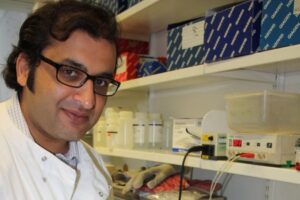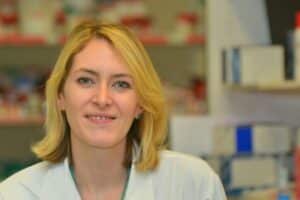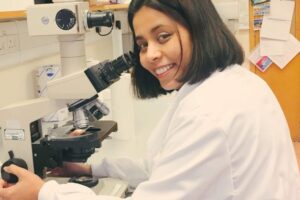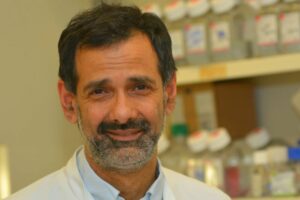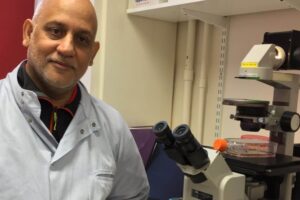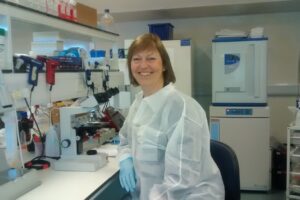Research
Learning why high-risk neuroblastoma resists treatment – to learn how to beat it
One of the hardest things about finding a cure for cancer is that many forms don’t respond well to treatment. We’re looking at why a particular kind of high-risk neuroblastoma that affects children resists attempts to treat it, so we can develop new ways to beat it, and give children a better chance to survive it and live longer lives.
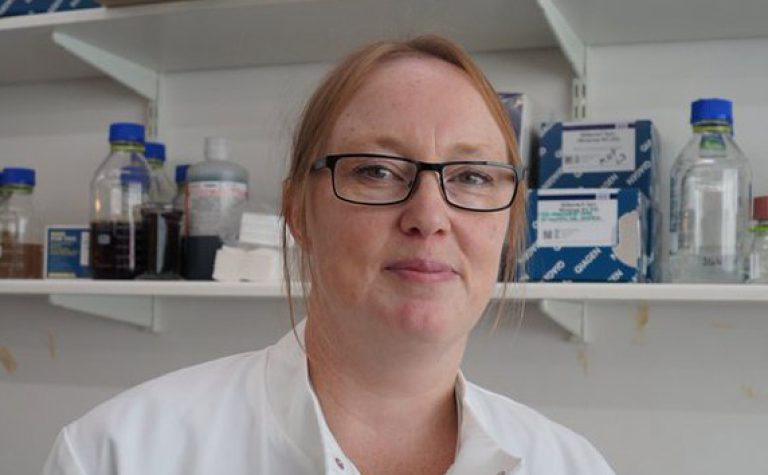
Project Details
- CRISPR-based genome-wide knockout and overexpression screens to identify acquired resistance mechanisms to ALK inhibition in neuroblastoma
- Lead Researcher
- Dr Suzanne Turner
- Research Centre
- University of Cambridge
- City & Institution Postcode
- Cambridge CB2 0QQ
- Start Date
- 14 November 2016
- Project Duration
- 3 years
- Grant Amount
- £223,310
Overview
Neuroblastoma is the second most common solid tumour in children, affecting around 100 children a year in the UK. It’s a cancer of the nerve cells, usually developing in the abdomen, and causes over 10 per cent of deaths from childhood cancer. Although overall survival rates from neuroblastoma have improved, for those in high-risk or relapse categories rates have remained at 40 to 50 per cent per cent since the 1970s.
Suzanne is aiming to identify what makes neuroblastoma resistant to a new form of treatment targeting a gene mutation called ALK, so that she can work out ways to overcome it.
This project will build on previous work by the Turner group. They’ve identified a list of genes that may be involved in resistance to ALK inhibitors. Every gene on that list will be individually tested to confirm its role, then the team will work to develop clinically-viable strategies to overcome it.
What difference will this project make?
Resistance to treatment has always been a major obstacle to successfully curing cancer. Some types, including the high-risk neuroblastoma that affects children, will respond at first to intensive treatment, but then resistant tumours develop, which mean that the child is unlikely to survive.
This project is looking at mutations in a gene known as ALK, and how tumours relating to it develop resistance to treatment.
Around 9 per cent of high-risk neuroblastoma patients carry this ALK mutation. It’s also seen in a number of adult cancers, and we’ve had some good initial results with treatments that use ALK inhibitors. But although the tumours respond well to start with, after a while resistant tumours emerge. We’re now looking at neuroblastoma with tumours carrying these ALK mutations, and expect them to develop similar resistance over time.
Up to now, when exploring new ways to treat these tumours, we’ve had to use a ‘wait and see’ approach, trying things out through several rounds of trials before we can see the effect. This takes a long time, often too long for children going through an early round of a trial for a new treatment.
In this project, Suzanne will be investigating how tumours resist to a treatment at the same time as the trials, aiming to develop tailored treatments against resistant neuroblastoma tumours. If successful, this should help to prevent relapse, and significantly extending the children’s survival periods.
About the Research Team
Dr Suzanne Turner is a Senior Lecturer in the Department of Pathology at the University of Cambridge. She has over 20 years of research experience and is an internationally-recognised expert. She is currently leading ALKATRAS, an EU-funded project looking at the ALK protein and developing ways to work against cancers relating to it.
Her co-investigator is Liam Lee, a PhD student in the Department of Pathology. He has over 10 years of research experience from previous fellowships at leading US institutions, including MD Anderson Cancer Center and the National Cancer Institute. His expertise in genetics and bioinformatics (analysing complex biological data with computer scripts), is key to this study.
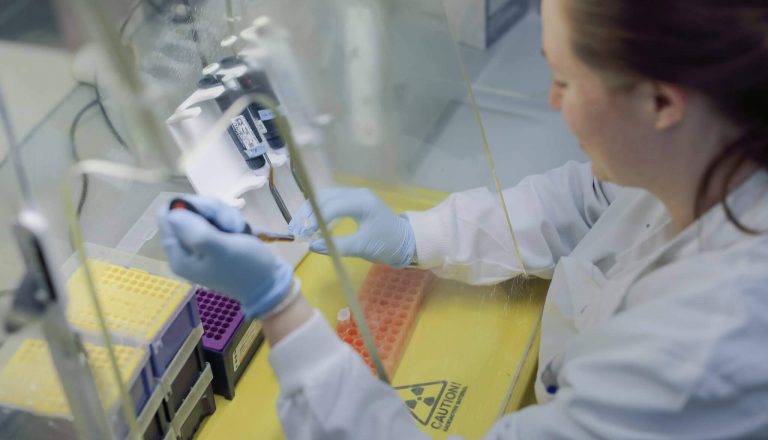
Learn more about High-risk neuroblastoma
High-risk neuroblastoma develops resistance to treatment, so children affected by it often relapse. We’re looking at what makes tumours develop resistance, so we can overcome it.
Thank you
This research project on high-risk neuroblastoma has been successfully completed. Your donations allow us to fund ground-breaking research that can improve treatments given to children with cancer. Thank you. Your help allows us to continue to find ways to drive up the chances of survival for children with cancer and reduce the toxic side effects that can affect the rest of their lives.
Other stories
We have lots of information to help you learn more about childhood cancer. From specific cancer types, to treatments and causes.

